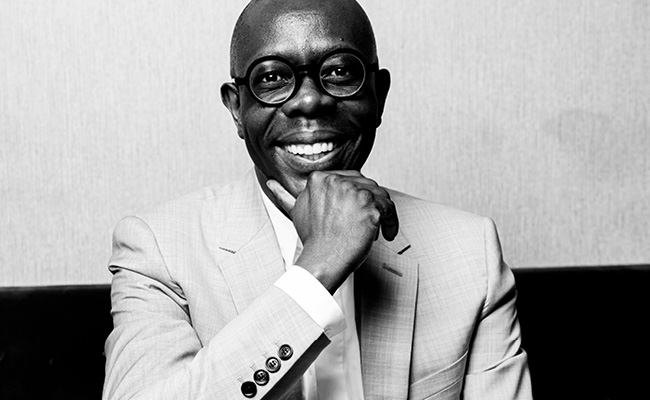Barloworld’s independent board is correct when it says it’s not market practice to place “conflicted” members of management on long-term gardening leave during a management buyout process. But this is not a management buyout; it is something completely different. It’s a CEO-led buyout in which no other member of management is involved.
This is why it is particularly appropriate and would cause little disruption if CEO Dominic Sewela was placed on furlough until the transaction is completed.
It’s not as though Sewela has the sort of unique intimate knowledge of the workings of the company that a founder might have. And he certainly hasn’t done much to improve the group’s long-term uninspiring performance. So, placing him on gardening leave until September 11 is the best way to deal with the inherent conflicts that this unusual transaction creates. (September 11 is the long-stop date, which is when the transaction is expected to be finalised. Of course it could be much later, given the inevitable uncertainties surrounding a deal of this size.)
“As a director, the CEO has a fiduciary responsibility to continue to operate the business of Barloworld in its best interests,” the independent board tells us in the contrived Q&A appendix to the circular sent to shareholders. In fact, as a director, the CEO has a fiduciary responsibility to avoid situations in which his interests may conflict with the interests of the company.
It certainly looks as though those interests may have started to bump into each other in the second half of 2023. According to the recently released shareholder circular Sewela and the Zahid group concluded a “binding term sheet” on February 23 2024. Three days later the consortium, led by Sewela, informed the Barloworld board about the proposed transaction. It was only at this stage that the fanciful plethora of protocols, designed to avoid conflicts, was put in place. But what about the weeks, possibly months, before February 23 when Sewela was negotiating his private deal with Zahid over the future of the group?
The circular makes much of the whole “avoiding conflicts” brouhaha. There’s an independent board and a steering committee and then there’s a whole slew of “clear and enhanced governance” protocols.
It seems almost everyone has entered into a non-disclosure agreement. My personal favourite is the “clear protocol” agreed between the CEO and the independent board “which governs how the CEO is required to conduct himself during the offer period”. The intention is that Sewela minimises potential conflicts of interest between his duties as a director, as an employee and his personal interests.
Does this mean he cannot participate in any investment decisions that will impact the company over the next two-plus years?
Rather strangely Sewela is also required to minimise disruption to the operation of Barloworld. Furthermore, he must not share confidential Barloworld information with the consortium, of which he is the leader, without prior board consent.
Then there’s the steering committee of selected unconflicted Barloworld executives and the independent board’s external advisers. This is the team tasked with assessing the offer and navigating the transaction process. And, not to worry, it seems there will be regular checks to confirm the unconflicted status of the Barloworld executive members of this committee.
“These protocols have served to ensure that the business continues to be run efficiently and in the best interests of all Barloworld shareholders and Barloworld, whilst mitigating potential conflicts between the Newco offer and the day-to-day running of the Barloworld group’s operations,” shareholders are told rather glibly.
Whatever faith the investment community might previously have had in the effectiveness and integrity of this sort of convoluted process, currently there is almost none. And that’s not specific to this case, either. It’s a little unfortunate for the consortium and its advisers that corporate news is currently awash with descriptions of how Markus Jooste managed to run rings around a Steinhoff board filled to the gills with extremely well qualified and experienced directors. Faith in corporate governance is currently at an all-time low.
The ‘excludeds’
So, what have we got at Barloworld? Essentially for most of the next year the group’s senior executives and directors will be devoting much of their energies to keeping tabs on each other and constantly trying to decide what is, or is not, a Newco-related decision.
Consider too that some of these executives and directors might be feeling a little miffed about their exclusion from what’s likely to be the biggest transaction of their lives. Of course, it could be they were invited to join but they turned down the invitation, preferring to avoid the potential of huge riches in order to maintain a quieter, less risky life.
Section 3 of the circular is about the only section that deals with these “excludeds”. It says the Newco offer “aims to sustain the continuity of Barloworld’s management, staff and operations in line with the Barloworld Group’s existing strategy”. We’re also told that Newco’s “patient capital approach” will provide a platform to support the group’s existing staff, management and operations. All of which might bring comfort to the excluded executives, or not. They may be concerned that Sewela’s private vehicle – the very recently established Entsha – and not them, seems to hog the limelight in this transaction.
And, perhaps in a bid to curb any expectations of huge wealth in the Newco era, the excluded executive directors have already concluded service contracts with Barloworld, “on terms and conditions that are market-related and appropriate for their positions in Barloworld”.
Whatever way you cut it, managing Barloworld during the transaction period would be a lot more straightforward for all, except the Zahid group, if Sewela was parked on the bench.
It’s a shame he isn’t. But it’s even more of a shame that this transaction isn’t the management buyout the consortium wants us to believe it is. Broader involvement of management and other employees would remove the valid “enrichment” criticisms of the deal and give it a broad-based empowerment profile.
Was it Sewela’s decision to exclude management or Zahid’s?
Could it be Zahid believes the local management team is dispensable save for one individual who brings a black empowerment veneer to the transaction? A veneer sufficient to guarantee a speedy and successful journey through the Competition Commission and Tribunal’s general lengthy processes. “Compellingly, the Newco offer aligns with government’s black industrialist policy being championed through the department of trade, industry and competition,” says the circular, worryingly confident of easy passage.
If the deal does sail through the competition authorities, it will say much about the post-Ebrahim Patel competition regime. And the JSE can look to a further dwindling of its status as opportunistic investors look to repeat the precedent set by Sewela and the Saudis.
Sign up to Currency’s weekly newsletters to receive your own bulletin of weekday news and weekend treats. Register here.








